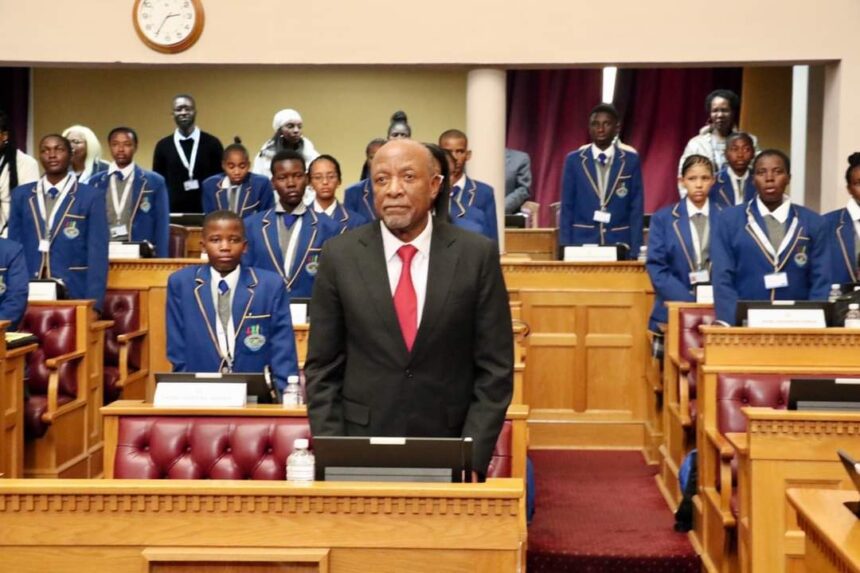President Nangolo Mbumba has encouraged the sixth cohort of the Children’s Parliament to take their roles seriously, and ensure that all 14 regions are fully-represented in the House.
The mission of the Namibian Children’s Parliament is to create a developing society with a high sense of responsibility, of which children and the youth are part, and adults are partners.
“One thing that you should always keep at the back of your mind, now that you are a member, forget about being a child. You are here to make the laws for every citizen in Namibia, and you are here to represent all the 14 regions,” he said.
The President added that no region should be left unrepresented because that would be a violation of the Constitution. When that happens, there is no longer a system to depend on.
He added: “As the President, this will be my first and also my last time to do so. Hence, this is a memorable double honour for me”.
He noted that by shadowing parliamentary leadership roles, and learning the ropes of legislation making, the young parliamentarians are illustrating their readiness to assume the mantle of leadership in the Namibian society.
He paid tribute to the late Mose Tjitendero, the first Speaker of Parliament, and the late Theo-Ben Gurirab, the second Speaker, under whose term of office the idea of the Children’s Parliament was realised.
“These are the pioneers who had the foresight to prepare our children for leadership roles. Through this opportunity, our children, over the past 17 years, have been taught to express themselves on topical governance issues relating to children’s rights and obligations,” he added.
Mbumba added: “Early preparation and training of our young people for leadership in society is the best heritage we can bequeath to them. In this way, they will maintain a united, inclusive, peaceful and prosperous One Namibian One Nation long after we, the elders, are gone”.
He said that by so doing, they will eternally demonstrate appreciation to Namibian heroes and heroines who sacrificed their lives for freedom from apartheid and colonialism.
Previous sessions of the Children’s Parliament positively impacted the rights of children, including the Fourth Session in 2013, which occasioned the implementation of the learner pregnancy policy.
Many teenage mothers have since then continued and completed their education after childbirth.
Again in 2019, the fifth session led to the increase of disability grants for orphans and vulnerable children (OVCs) from N$250 to N$1 300 as of 2023, and the eventual passing of the Child Rights, Welfare and Empowerment Act of 2015.
The head of State said these are immense achievements that Namibians should be proud of.
Information and Communication Technology minister Emma Theofelus is one of the current crop of lawmakers who walked through those chambers while serving as junior mayor of the City of Windhoek, championing the learner pregnancy policy.
“I was part of the fourth session of the Children’s Parliament in 2013. I think our session was the most robust. We got reports of the issues of when teenage girls fall pregnant, they were not allowed to come back to school. We also dealt with issues relating to orphans and vulnerable children grants,” recalled the member of Parliament.
Social welfare minister Doreen Sioka said the Children’s Parliament is one of many platforms in the country that advocates and champions children’s rights.
She highlighted that the Child Care and Protection Act No. 3 of 2015 is guided by two principles, namely the “best interests of the child” and “child participation”.
“In terms of coordination of children’s issues, the ministry continues to support the coordination mechanism for children’s issues in the country. The Permanent Task Force on Children provides a platform for key stakeholders in the child protection sector to raise awareness and advocacy,” she said.
She added: “With regards to safeguarding and maintaining the wellbeing of children, the grants to OVCs and that of children with disabilities have been increased during the last financial year. Indeed, we equally recognised the contribution of the Children’s Parliament towards these crucial socio-economic development changes”.
Themed ‘Transforming Education In Namibia’, the parliament will host an array of topics until 19 July 2024.
-psiririka@nepc.com.na



